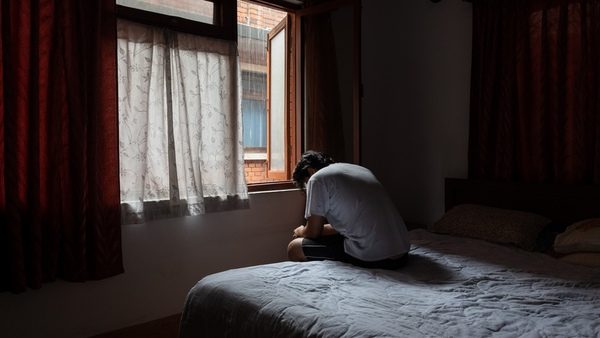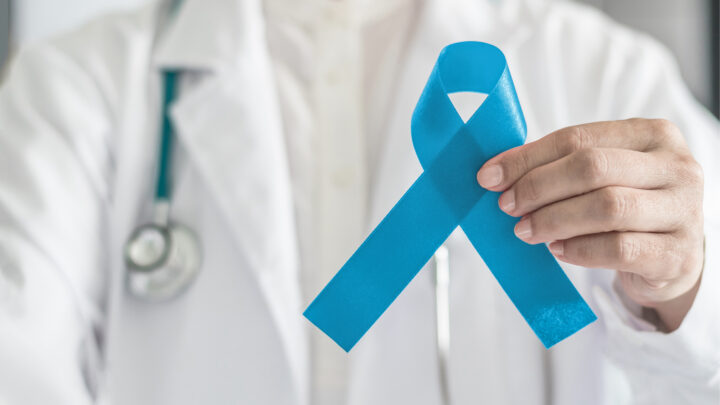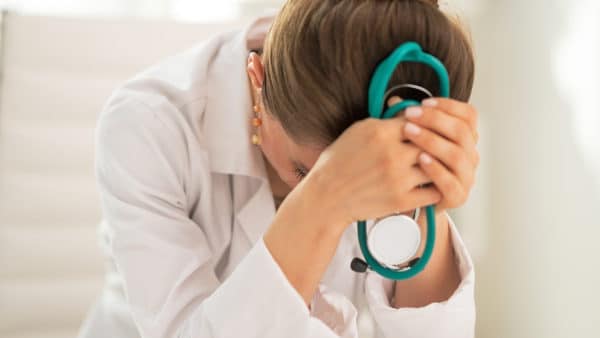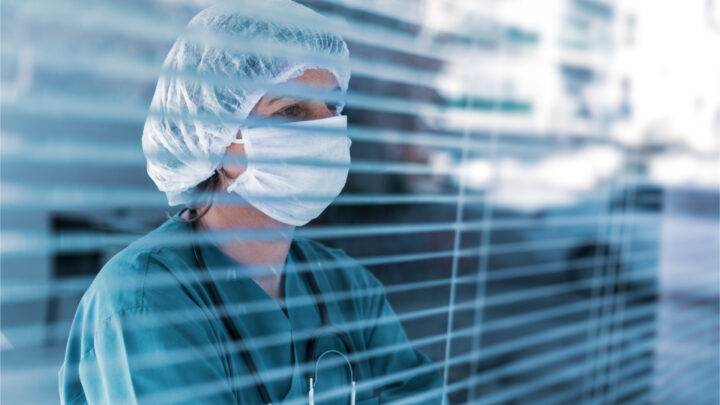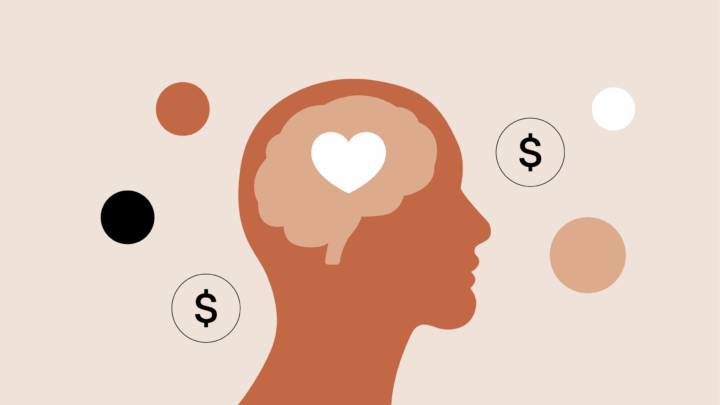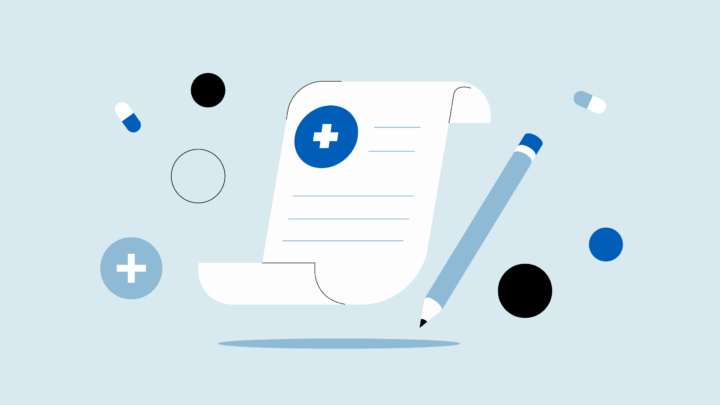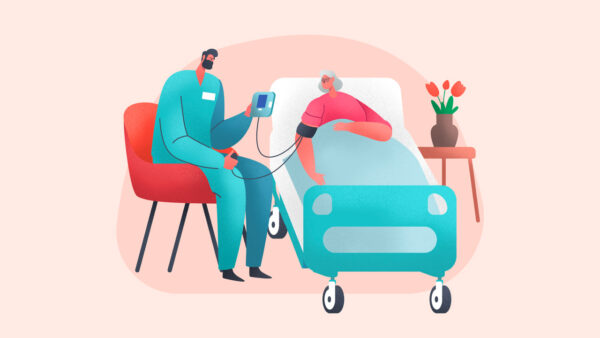
World Mental Health Day was observed on Monday, October 10. Leading up to this important day, Sermo physicians discussed mental health issues around the world, what more needs to be done to make mental health care a reality for all people, and the importance of regular screenings. With National Depression Screening Day also taking place last week, we asked Sermo physicians if they regularly screen for this condition. In response, 79% of doctors answered yes.
Unfortunately, but not surprisingly, 92% of global physicians said they’ve seen rates of depression increase since the start of the pandemic. 89% have seen depression linked to certain conditions and illnesses—and 94% said depression can complicate illnesses.
When asked about which age groups are most affected by depression, here’s how the doctors responded:
- 10% young children
- 14% middle school-aged children
- 33% teenagers
- 47% young adults
- 57% middle-aged adults
- 48% elderly
90% are currently seeing more younger adults dealing with mental health issues, compared to the past; and 83% are seeing more children struggling with mental health issues.
When asked which trusted mental health resources doctors recommend to their patients—this is how they answered:
- 77% said therapy
- 56% said exercise
- 56% friends/family
- 56% said support groups
- 48% said medication
- 36% said emergency help
- 23% self-help books
94% said the stigma of mental health issues prevents patients from seeking help.
91% said the stigma of mental health issues prevents their colleagues from seeking help.
Below, Sermo physicians from around the world share more of their professional insights, perspectives, and opinions on this important topic—in their own words:
“Social media, unequal access to wealth, our “me me me culture” are big factors. Also climate change, the destruction of our environment, the squandering of resources among the top % are all factors as well as personal stressors. I loathe to treat the individual alone when our uncivil society is such a large part of it.”
Family Medicine, U.S.
“The combination of psychotherapy and antidepressant drugs are the alternatives that show greater efficacy for the management of patients with depression, whether mild, moderate or severe.”
General Practitioner, Venezuela
“We need to find a way to have doctors/providers have more time with patients. Mental health is a big problem, real and common but hasn’t been taken care of. We need to take dollars off doctors minds and let them practice without thinking or worry about their compensation.”.
Pediatrician, U.S.
“I am in the position as an anesthetist of seeing depressive patients with the most severe depression that has not responded to medication or any other type of therapy. We give them a course of ECT and generally note some improvement within the first 2 weeks of treatment. Sometimes ECT can be a life-saver for withdrawn patients who have ceased to eat or interact even with family or staff. The success rate in UK is reported at over 80% (that means able to return to a normal existence, although not necessarily a perfect loss of depressive symptoms). Like back pain, once someone has had depression, there is a chance that it will recur. It is very satisfying that recurrent patients specifically ask their doctor to refer them back to us for ECT as they know it really works for them. The feedback from patients at the end of their ECT treatment is generally very positive and friends and family often tell us that it is so wonderful to have the former patient back as a normal person within their family. I would have no hesitation in having ECT myself if it were necessary!”
Anesthesiology, U.K.
“The fundamental resources to combat depression are physical exercises, going to support groups, participating in the different types of therapies that exist, avoiding loneliness, stress.”
Infectious Diseases, Cuba
“There are reliable mental health resources that can be turned to for assistance for patients in most communities. Some examples of resources are SAMSHA that can provide help for persons dealing with mental illness and substance abuse, hotlines like Suicide and Crisis Lifeline available 24/7 with a phone line that offers help and support counseling for individuals facing emotional crisis or thinking of suicide and community mental health programs that can offer more noninstitutional approaches to mental health. Though resources are available, what is needed is a much greater volume of the resources. While one epidemic, the Covid one, may be waning, another one, contributed to by the Covid epidemic seems to be gaining strength. This epidemic is the trend of homelessness, mental illness and substance abuse. In 2020 according to the National Alliance to End Homelessness there were more than 580,000 homeless persons in the U.S. Homelessness and the attendant high percentage of mental illness and substance abuse affecting homeless individuals places a significant burden on mental health resources. Every large city and major metropolitan area in the U.S. is now affected to a significant degree. This is a problem that is not going away. The homeless need treatment and help. Large numbers do not even have shelter. A concerted coordinated effort needs to be ideally made by all segments of society, involving the private sector, government, voluntary organizations.and religious organizations pulling together to provide adequate resources similar to dealing with a natural disaster such as a hurricane. I think it is an urgent matter not only because we are dealing with a significant mental health crisis but from the standpoint that we may be overall preventing the breakdown of our societal integrity.”
Internal Medicine, U.S.
Everyday thousands of Sermo member physicians from diverse backgrounds and experiences exchange knowledge with each other. Sermo is the original medical social network that empowers today’s physicians. Over 1 million fully verified physicians across more than 150 countries come to our platform to talk with peers, participate in paid medical studies, solve challenging patient cases, contribute to the world’s largest database of drug ratings – and enjoy a few laughs along the way.
Interested in more? Check back any time and follow us on Facebook, Twitter, and LinkedIn for the latest and greatest in physician insights.
Are you a physician or healthcare practitioner?
Explore the many benefits of joining Sermo’s medical community and sign up for free today.

